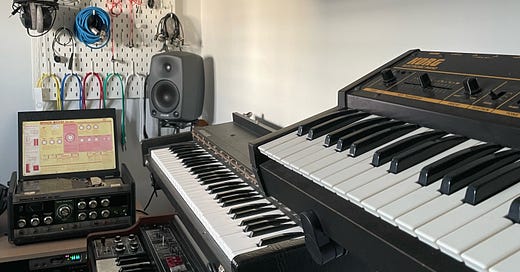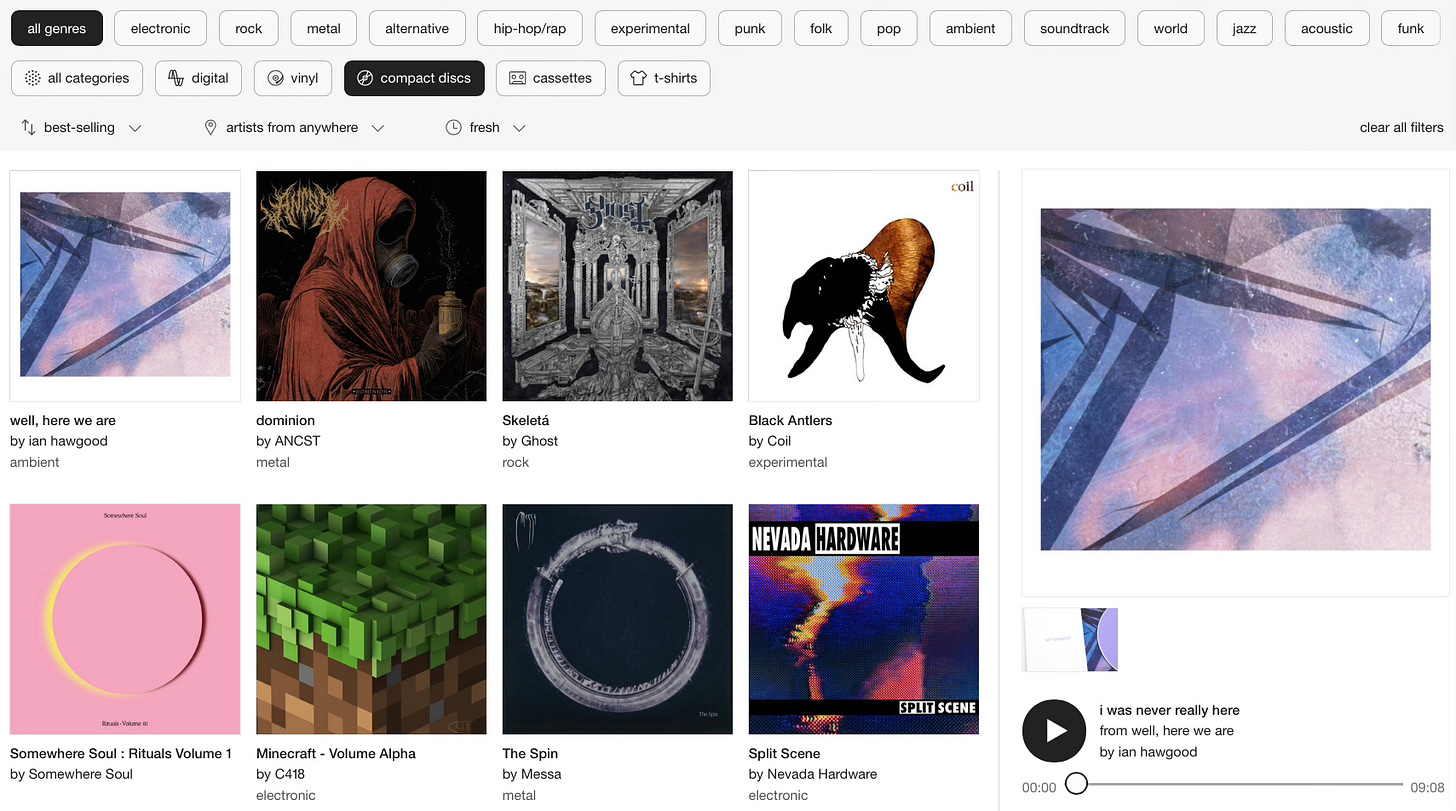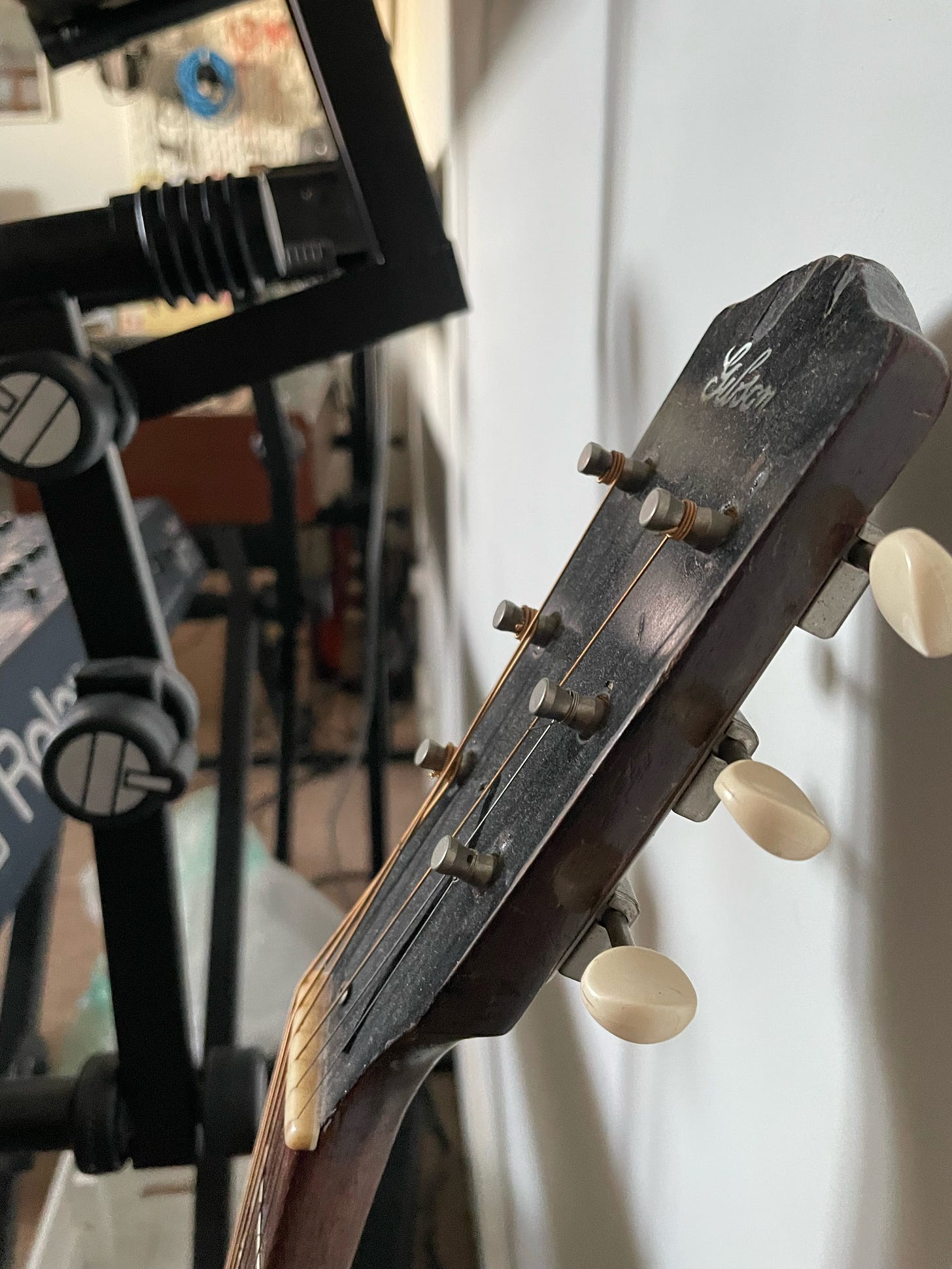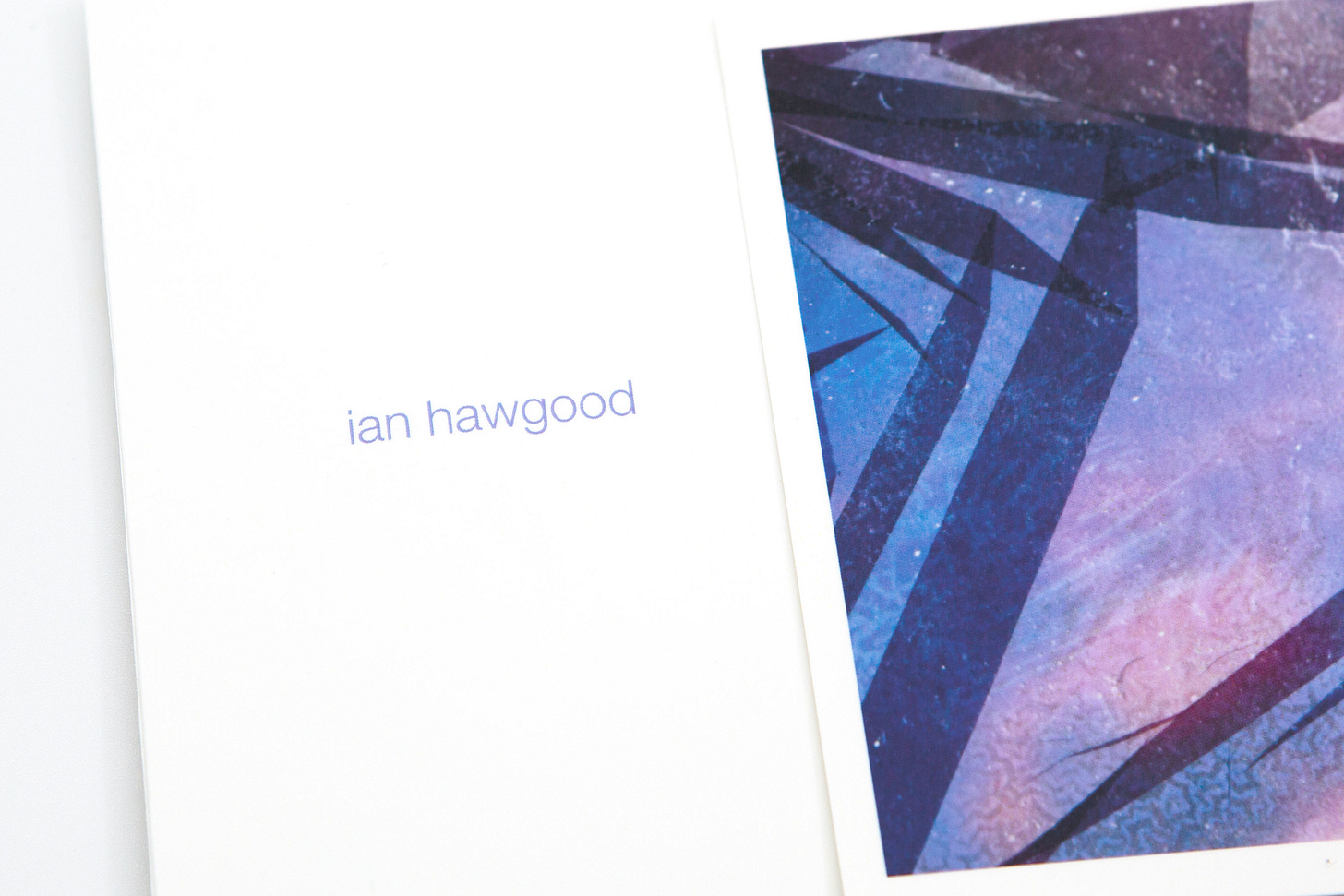Hey friends - hope all good :)
Well we’ve had some amazing qd parties but I’m not sure we’ve ever seen so much love as was sent Ian’s way last night! One of the busiest too, wonderful crowd!
Thank you all for coming, it means a lot to me and I know it means to the world to Ian - he truly deserves it so I’m very grateful for all the positivity.
Incredible support too - currently the bestselling CD in any genre on Bandcamp and third overall any genre/format.
Huge thanks, it’s so good to have a community that really understands the importance of buying music and supporting artists and labels - you’re the reason we can keep doing what we do!
Digital still half-price and some CDs left - remember to message me for the long-form if you bought the physical edition.
Now Part One of the Q&A - Ian goes deep here, huge thanks to him as always for being so open.
Please tell us a bit about your background and history in music
My interest in sound developed from a very young age as a reaction to hearing and health issues as a kid. I was in and out of hospital with ear infections and was supposed to wear hearing aids but didn't want to get bullied at school so often refused to wear them. I come from a musical family who played the piano all the time. My parents had been 'withdrawn' from a religious group before I was born so played a lot of old hymns and worship songs exclusively. My sister played the violin and my mum the saw as well. These triggered severe ringing in my ears so I would often take off my hearing aids and hide in the garden. The same happened at school where I reacted very badly to loud noises and too much activity.
Between four and ten I was made to play the piano and perform at charity and church events. I couldn't read nor hear the music easily and it was quite painful to do this in public leading to (what I now understand) severe trauma. I played based on memorising hand movements from my teacher but didn't really know nor care for what I was doing. The seeming negativity of all this had a huge influence on my appreciation of the quietude of small details in sounds and I feel this is reflected in 'well, here we are' and my approach to music in general.
My hearing cleared when I was ten years old after another infection put me for a period in hospital. Soon after I quit the piano. That year I was bought my first modern music with two Michael Jackson cassettes and the Hits 3 compilation with some amazing artists, and I was also gifted my family's old radio / cassette player and later some old headphones. This was my first access to modern music but for that I was bullied at school as I just didn't have access to the most recent releases of music nor cared for it. Due to our background we were just naturally a bit behind on such things. When kids found out I was obsessed with 'Take On Me' by Aha still for example, well, it was pretty brutal. I still listened to this great music, but found I couldn't talk about it nor things I loved to anyone as a result. So yeah, music was quite a traumatic thing with others but when alone with headphones on, was my safe space.
This all changed when a music-obsessive friend took 'pity' on me I think when I was about 15 (thanks Paul!). He brought his Walkman into science class and introduced me to Inspiral Carpets, The Smiths, PWEI, RATM, and all sorts of music as we hid below the Bunsen burner desks. I remember being amazed by the noise and tone of 'Revenge of the Goldfish' by Inspiral Carpets, the intricate melodies of PM Dawn, and especially trying to just figure out how Jonny Marr created what he did on guitar. Needless to say I failed science but gained a love of music that brought me out of my shell. A couple of years later I changed schools and was persuaded to start the bass for a band, and it really all went from there. Music just never left me since that point and became everything to me.
My love and understanding of music developed quickly the more people I met, the more I discovered and collaborated. At university I met Ben who helps with Home Normal, and we played in a few bands we hated before filling up our student digs with organs, drums, guitars and any other cheap instruments we could find locally. I had an old RP-6 fx unit and was trying all sorts of fun stuff with my guitar to create walls of sound which these bands hated, but they loved Ben who is an amazing drummer and artist. Thankfully Ben was into giant amounts of noise like me, bought a 4 track with a loan and we got really into tape manipulation and recording at home while our friends went out drinking and clubbing. Not much has changed almost thirty years later.
I moved to Japan after university to be in a band in 2001 and bought my first synth, a Roland JP8000 and recorder, a Fostex X18. And I found myself making ambient music without really understanding what it was I suppose. It was a way to deal with feelings of isolation in my little apartment, and a way to record the local environment. I'm in my mid-forties now and not much has changed really. All of this grounded what my music is and what my label was meant to represent - ie. feeling connected and 'normal' in a 'home', wherever that may be. And that's been the case since from studying music tech to performing and beyond.
Please can you describe a bit about your general philosophy and process as an artist?
I've always seen music as home and a way of communicating and connecting with others from my shell. As we can let go and be ourselves at home, I very much align myself to the belief that with my music everything is ok and meant to be. There's no control, no force or overt moulding of the environment, just a sense that there is an air between us and that music is the way to move through those pockets, straight to the heart.
This is evident in the relationships between collaborators and bands. There is a space between artists when they collaborate in person especially, and that's why being in bands or groups can be either extremely connecting in the positive or consuming if people don't listen to the space between and the others in the negative. I've always been entranced by the air between sounds from my childhood where overt sounds or music often consumed the air, and I wanted to allow the small details in the air around to come forward more.
This has influenced my process the more music I find myself creating really. I like to map out recording chains in a fun way so have a slight obsession with microphones and recorders as they have such an influence on the tone I want to bring forward. And I'm utterly obsessed with tone to be clear, again probably from my experiences as a kid. So my direct process is ever-changing but is typically focused on one instrument and how I can utilise that to create something that expressed something connected.
Saying that, the process for creating 'well, here we are' was really quite different as it contains pieces I created randomly that I never actually meant to release initially before my breakdown alongside music and recordings I made myself and with friends as I went through a long period of rehabilitation. There really was no plan with this other than slowly getting back to sounds that aided my recovery and getting into older equipment I'd grown up with to support not only my memory rehabilitation but also turning negative patterns into accepting, and therefore, positive ones.
What does quiet details mean to you and how did you use that to approach this album?
I didn't approach the album with an idea of 'quiet details' as this all started before I even thought I'd be able to make more music again. I didn't even approach making an album anyway. :) It just sort of happened alongside the physical and mental journey I was on, with amazing support I should add, the last two years.
Yet the idea of quiet details means everything to me creatively. All my music is focused on the quiet details around and through the music, in the air and feel between the creators to the tonality of each element. Those details mean everything. Most especially though, the quiet details that really matter lay in the quiet communication with the listener and how the space around melodies, tones and structures connects us. There is so much more than what is direct and obvious, and there is so much to share in that which is always present but quiet or somewhat hidden. It is here that we find our innate depth of connectivity. Don't let the modern world fool you; living beings are pretty amazing and have a capacity for connection and light even when things seem pretty dark.
There is one practical example I can think of to explain one part of this. I remember reading a rare Boards of Canada interview in Japan back in 2001 that really stuck with me. They talked about finding instruments for even a one-shot melodic turn in a track, never to be repeated. How the tone and texture, despite not being looped alongside the rest, could stay with the listener. That's an idea that has really influenced me and ties in with this concept, where music can loop in and out entrancing the listener and creator alike, but little variations, organic sounds, fluctuations and melodic bursts pop out and like a warm memory stay in your head long after the sound has evaporated into seeming nothingness. That's a lovely example of a quiet detail on a practical level in music.
Couple of shout-outs today:
qd33 Ian Hawgood
Wouldn't be a qd release week without a lovely post from our friend Neil Mason over in Moonbuilding - thanks to him for the kind words about Ian’s album and all the other fresh music news!
qd31 Polypores
Thanks to Trevor for playing a track on Virtual Cassette Library 029
Much love, thanks again and have a great weekend!
Alex
quietdetails.com
quiet details Bandcamp
quiet details Substack
quiet details studios - mastering and audio services
my music as fields we found - individual works, and subscription with exclusives and more










Really interesting, honest, and inspiring words from Ian. The album's bloody gorgeous.